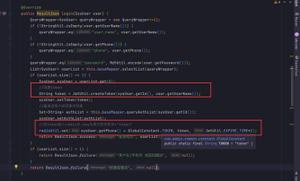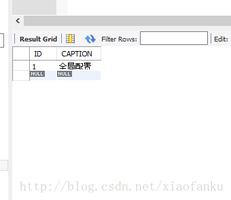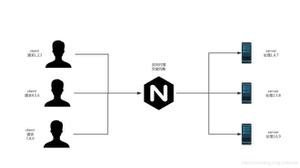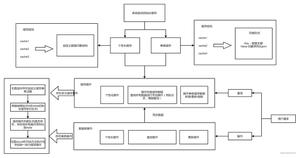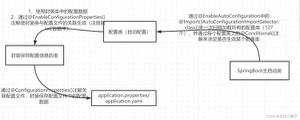Spring Boot/VUE中路由传递参数的实现代码
在路由时传递参数,一般有两种形式,一种是拼接在url地址中,另一种是查询参数。如:http://localhost:8080/router/tang/101?type=spor&num=12。下面根据代码看一下,VUE 和 Spring Boot" title="Spring Boot">Spring Boot 中各自是如何处理传递和接受参数的。
Spring Boot
package com.tang.demo1.controller;
import org.springframework.web.bind.annotation.*;
@RestController
public class RouterController {
@RequestMapping(path = {"/router/{name}/{classid}"}, method = RequestMethod.GET)
public String router(@PathVariable("name") String name
,@PathVariable("classid") int classid
,@RequestParam(value = "type", defaultValue = "news") String type
,@RequestParam(value = "num", required = falsef) int num){
// 访问 http://localhost:8080/router/tang/101?type=spor&num=12
return name + classid + type + num;
}
}
在url路径中的,被称为pathVariable,查询参数被称为pequestParm。在controller中接受参数,可以直接在方法里用了。
VUE
routes: [
{
path: '/',
name: 'HomePage',
component: HomePage
},
{
path: '/user/:id?/:type?',
name: 'User',
component: User
}
]
首先在路由中配置url中需要传递的参数,被称为动态路径参数。以“:”开始,末尾的“?”表示为可选的参数。
<template>
<div>
<p>user</p>
<router-link :to="'/user/' + item.id + '/' + item.type +'?name=' + item.type" :key="index" v-for="(item, index) in userList">{{item.name}}</router-link>
<div v-if="childName">
<p>-----</p>
{{childName}}
</div>
</div>
</template>
<script>
var list = [
{'name': 'xiaoming',
'id': 123,
'type': 'vip'},
{'name': 'gangzi',
'id': 456,
'type': 'common'}
]
export default {
data(){
return {
userList: list,
childName: null
}
},
watch: {
$route(){
if(this.$route.params.id){
this.childName = this.$route.params.id +'//////' + this.$route.query.name;
}else{
this.childName = null
}
}
},
methods: {
},
created() {
// this.$route.params为动态路径参数
if(this.$route.params.id){
// this.$route.params为查询参数
this.childName = this.$route.params.id +'//////' + this.$route.query.name;
}else{
this.childName = null
}
},
deactivated() {
console.log('deact')
},
computed: {
},
components: {
}
};
</script>
vue中接受参数需要从routes实例中获取,动态路径参数在params里,查询参数在query里。
当vue的动态路径组件处在激活状态时,如果改变动态路径参数,那么写在created()的方法将不会再次被调用,因为该组件已经创建好了。此时,可以为$route添加一个watch,当其发生变化时,再获取数据。
在路由时传递参数,一般有两种形式,一种是拼接在url地址中,另一种是查询参数。如:http://localhost:8080/router/tang/101?type=spor&num=12。下面根据代码看一下,VUE 和 Spring Boot 中各自是如何处理传递和接受参数的。
Spring Boot
package com.tang.demo1.controller;
import org.springframework.web.bind.annotation.*;
@RestController
public class RouterController {
@RequestMapping(path = {"/router/{name}/{classid}"}, method = RequestMethod.GET)
public String router(@PathVariable("name") String name
,@PathVariable("classid") int classid
,@RequestParam(value = "type", defaultValue = "news") String type
,@RequestParam(value = "num", required = falsef) int num){
// 访问 http://localhost:8080/router/tang/101?type=spor&num=12
return name + classid + type + num;
}
}
在url路径中的,被称为pathVariable,查询参数被称为pequestParm。在controller中接受参数,可以直接在方法里用了。
VUE
routes: [
{
path: '/',
name: 'HomePage',
component: HomePage
},
{
path: '/user/:id?/:type?',
name: 'User',
component: User
}
]
首先在路由中配置url中需要传递的参数,被称为动态路径参数。以“:”开始,末尾的“?”表示为可选的参数。
<template>
<div>
<p>user</p>
<router-link :to="'/user/' + item.id + '/' + item.type +'?name=' + item.type" :key="index" v-for="(item, index) in userList">{{item.name}}</router-link>
<div v-if="childName">
<p>-----</p>
{{childName}}
</div>
</div>
</template>
<script>
var list = [
{'name': 'xiaoming',
'id': 123,
'type': 'vip'},
{'name': 'gangzi',
'id': 456,
'type': 'common'}
]
export default {
data(){
return {
userList: list,
childName: null
}
},
watch: {
$route(){
if(this.$route.params.id){
this.childName = this.$route.params.id +'//////' + this.$route.query.name;
}else{
this.childName = null
}
}
},
methods: {
},
created() {
// this.$route.params为动态路径参数
if(this.$route.params.id){
// this.$route.params为查询参数
this.childName = this.$route.params.id +'//////' + this.$route.query.name;
}else{
this.childName = null
}
},
deactivated() {
console.log('deact')
},
computed: {
},
components: {
}
};
</script>
vue中接受参数需要从routes实例中获取,动态路径参数在params里,查询参数在query里。
当vue的动态路径组件处在激活状态时,如果改变动态路径参数,那么写在created()的方法将不会再次被调用,因为该组件已经创建好了。此时,可以为$route添加一个watch,当其发生变化时,再获取数据。
在路由时传递参数,一般有两种形式,一种是拼接在url地址中,另一种是查询参数。如:http://localhost:8080/router/tang/101?type=spor&num=12。下面根据代码看一下,VUE 和 Spring Boot 中各自是如何处理传递和接受参数的。
Spring Boot
package com.tang.demo1.controller;
import org.springframework.web.bind.annotation.*;
@RestController
public class RouterController {
@RequestMapping(path = {"/router/{name}/{classid}"}, method = RequestMethod.GET)
public String router(@PathVariable("name") String name
,@PathVariable("classid") int classid
,@RequestParam(value = "type", defaultValue = "news") String type
,@RequestParam(value = "num", required = falsef) int num){
// 访问 http://localhost:8080/router/tang/101?type=spor&num=12
return name + classid + type + num;
}
}
在url路径中的,被称为pathVariable,查询参数被称为pequestParm。在controller中接受参数,可以直接在方法里用了。
VUE
routes: [
{
path: '/',
name: 'HomePage',
component: HomePage
},
{
path: '/user/:id?/:type?',
name: 'User',
component: User
}
]
首先在路由中配置url中需要传递的参数,被称为动态路径参数。以“:”开始,末尾的“?”表示为可选的参数。
<template>
<div> <p>user</p>
<router-link :to="'/user/' + item.id + '/' + item.type +'?name=' + item.type" :key="index" v-for="(item, index) in userList">{{item.name}}</router-link>
<div v-if="childName">
<p>-----</p>
{{childName}}
</div>
</div>
</template>
<script>
var list = [
{'name': 'xiaoming',
'id': 123,
'type': 'vip'},
{'name': 'gangzi',
'id': 456,
'type': 'common'}
]
export default {
data(){
return {
userList: list,
childName: null
}
},
watch: {
$route(){
if(this.$route.params.id){
this.childName = this.$route.params.id +'//////' + this.$route.query.name;
}else{
this.childName = null
}
}
},
methods: {
},
created() {
// this.$route.params为动态路径参数
if(this.$route.params.id){
// this.$route.params为查询参数
this.childName = this.$route.params.id +'//////' + this.$route.query.name;
}else{
this.childName = null
}
},
deactivated() {
console.log('deact')
},
computed: {
},
components: {
}
};
</script>
vue中接受参数需要从routes实例中获取,动态路径参数在params里,查询参数在query里。
当vue的动态路径组件处在激活状态时,如果改变动态路径参数,那么写在created()的方法将不会再次被调用,因为该组件已经创建好了。此时,可以为$route添加一个watch,当其发生变化时,再获取数据。
总结
以上所述是小编给大家介绍的Spring Boot/VUE中路由传递参数的实现代码,希望对大家有所帮助,如果大家有任何疑问请给我留言,小编会及时回复大家的。在此也非常感谢大家对网站的支持!
以上是 Spring Boot/VUE中路由传递参数的实现代码 的全部内容, 来源链接: utcz.com/z/313354.html


